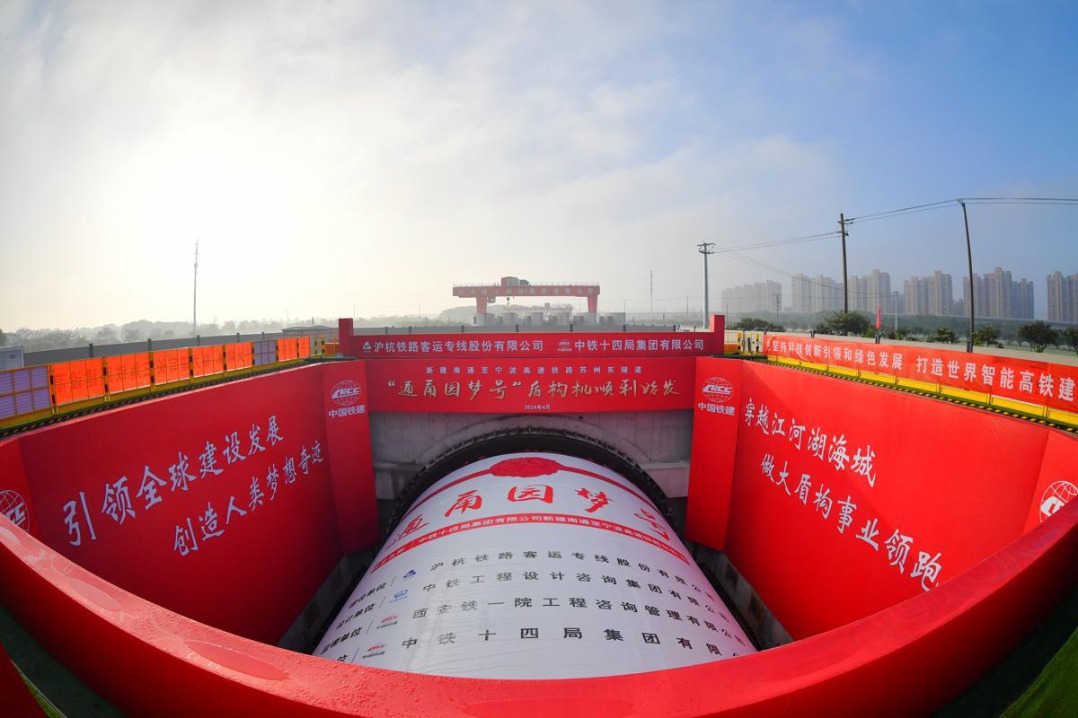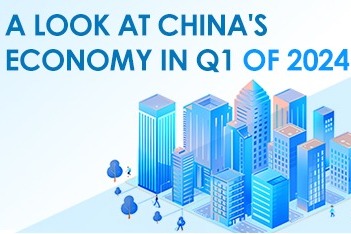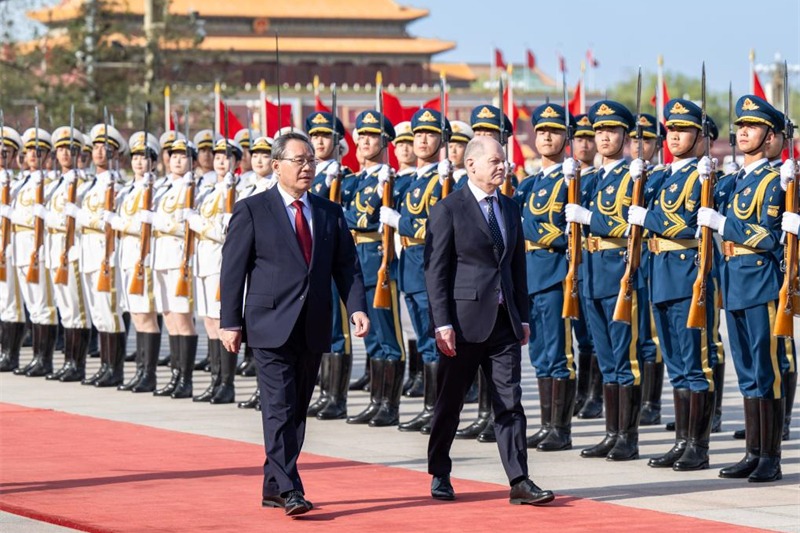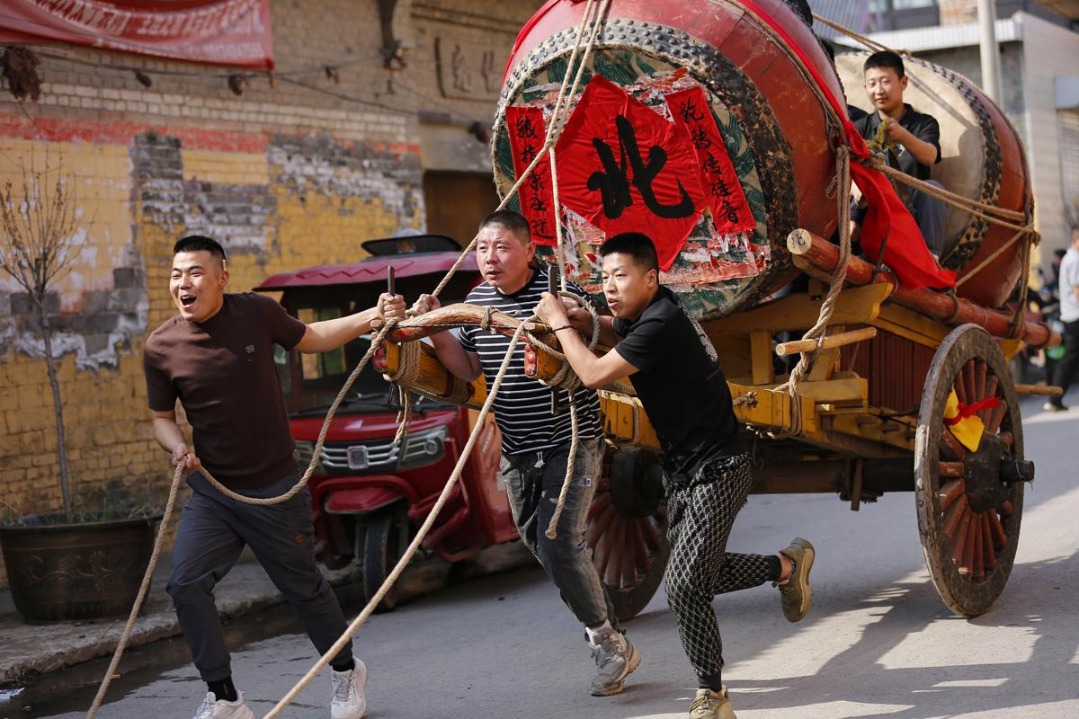Forum urges joint response to fight pandemic

The rising impact of the novel coronavirus pandemic means there must be joint response from the international community, including the pooling of wisdom and sharing of experiences, to fight the unprecedented public health threat and any global fallout beyond it, according to analysts.
The COVID-19 threat extends to areas, including the economy, society and governance, calling for urgent discussion and action on the concerted crisis management of health emergencies and reform of global systems, participants of an international forum of leading think tanks agreed this week.
The online event brought together Chinese and foreign analysts from six countries on four continents to discuss the strengthening of worldwide cooperation in the face of the pandemic.
In his keynote remarks, Du Zhanyuan, president of China International Publishing Group, which supported the forum, said the think tanks themselves offered a major platform to carry out joint research on the common challenges facing humanity, draw upon global views and work in solidarity to seek solutions.
"As think tanks, we are duty-bound to be part of the anti-epidemic efforts, we need to do more research … actively voice our opinions and contribute our wisdom and solutions for international cooperation," Du said.
Think tanks must oppose the stigmatization and politicization of the pandemic and refrain from using the virus as a weapon for political maneuvering, he said.
"In the face of a common challenge, what we need is wisdom, not political calculation; what we need is to help each other, not to take advantage of others' difficulties; and what we need is win-win cooperation, not lose-lose confrontation," Du said.
Gao Anming, vice-president and editor-in-chief of the publishing group, moderated the forum and said that "fighting the epidemic takes much effort and requires huge sacrifice. Mutual assistance among countries is of key importance in a time of crisis".
Joel Ruet, president of the Bridge Tank think tank specializing in emerging economies, said China's efforts at containing COVID-19 when it broke out in Hubei province certainly bought the world time to deal with the disease and marked an important step in knowledge about a new virus.
"Right from the beginning, we knew that we had to observe and learn from China. We had to be not just sympathetic but also empathetic, to be together in what had threatened to become a pandemic," said Ruet, who highlighted the efforts by Chinese authorities to lock down provincial capital Wuhan when it became the epicenter of the outbreak in the country.
"People in Europe praised the Chinese people in building a dam against the epidemic. This gave us time to prepare."
"I also want to praise all the medical professionals, all the researchers. This is a new epidemic … they all learn by being at the front line. They are really the people who are saving our lives. Also our policymakers, they are trying to learn and decide, they have to act immediately," Ruet said.
Learning experience
Dealing with the pandemic threat is an ongoing global learning process that covers the economic, human and social aspects of the international community and how its members see themselves and work together in future, he said.
In this time of crisis, "when one can see the best but also the worst of society", solidarities are being seen, Ruet said. He lauded the example of how industries have transformed some of their usual production processes to help supply medical supplies.
"We now have to think about systems ahead … the need to learn from China, beyond politics, beyond ideologies. We have to propose a global governance of health security."
Xu Shunqing, professor and vice-dean of the School of Public Health at Huazhong University of Science and Technology, shared the major lessons from fighting the outbreak in Wuhan these past months, including effective quarantine and home isolation practices, the building of medical capacities and the multilevel targeted treatment of patients.
"China has received a lot of support and encouragement from all over the world in the fight against the coronavirus. With joint efforts, the virus in China has basically been brought under control," Xu said.
"It is time for countries to work together during this period and win the fight."
Augusto Soto, professor of the Esade educational institution in Ramon Llull University and director of the Dialogue with China Project, Spain, said that "China is telling the world that the disease is controllable".
But while comprehensive Chinese measures to contain the disease offer much for the rest of the world to emulate, growing economic, financial and other challenges from the pandemic fallout mean there must be a "new culture of global collaboration", away from unilateralism, he said.
"Countries should work with the main global institutions, the United Nations, the World Health Organization, the International Monetary Fund … pooling resources toward treatment and a vaccine. Also, it is necessary, with global action, to limit the economic damage by coordinating fiscal and monetary stimulus measures and keeping the trading of goods open," Soto said.
Wang Wen, executive dean of the Chongyang Institute for Financial Studies, Renmin University of China, warned of pessimism in the short term that sees the world facing economic recession as the pandemic hit.
"Globalization is in shock… in the first quarter of 2020, the global, cross-border flow of people, materials and capital has been reduced by about 50 percent," he said.
"If pandemic continues to spread and there is no useful, available vaccine or medicine in the short term, the world economy may be even worse."
"The world must unite not only against the pandemic, but also against any depression," Wang said.
"All countries should strengthen coordination … and establish new global governance rules. Countries and regions have helped China over the past two months. Now that the situation in China has improved, it is offering assistance in supplies and expertise. In the long term, I'm still very optimistic."
Li Yong, deputy chair of the Expert Committee of the China Association of International Trade, said global governance will need to adapt to managing a new, fast-changing economic situation that requires a more effective and sophisticated response, with China coordinating with others in terms of stimulus and other plans.
'Great test'
Evandro Carvalho, head of the Center for Brazil-China Studies at Getulio Vargas Foundation School of Law, Brazil, said the fight against COVID-19 is also a "great test" for countries and governance systems to take "quick and effective measures".
From steps in containment and accountability, to changes in public health and medical insurance, the pandemic is driving governments to make difficult decisions and take firm action, he said.
"Solidarity between states is also an important dimension… amid the COVID-19 pandemic, states are being driven to exchange information and cooperate. The world will not be the same after this pandemic," Carvalho said.
"Major infectious diseases are our common enemy and know no national borders. No one is an outsider and no country can stay out of it in the battle against the viral onslaught," Gao Anming said.
"Fighting the virus takes joint efforts of people from across the world, regardless of their nationality, language, color of skin and religious beliefs."





































